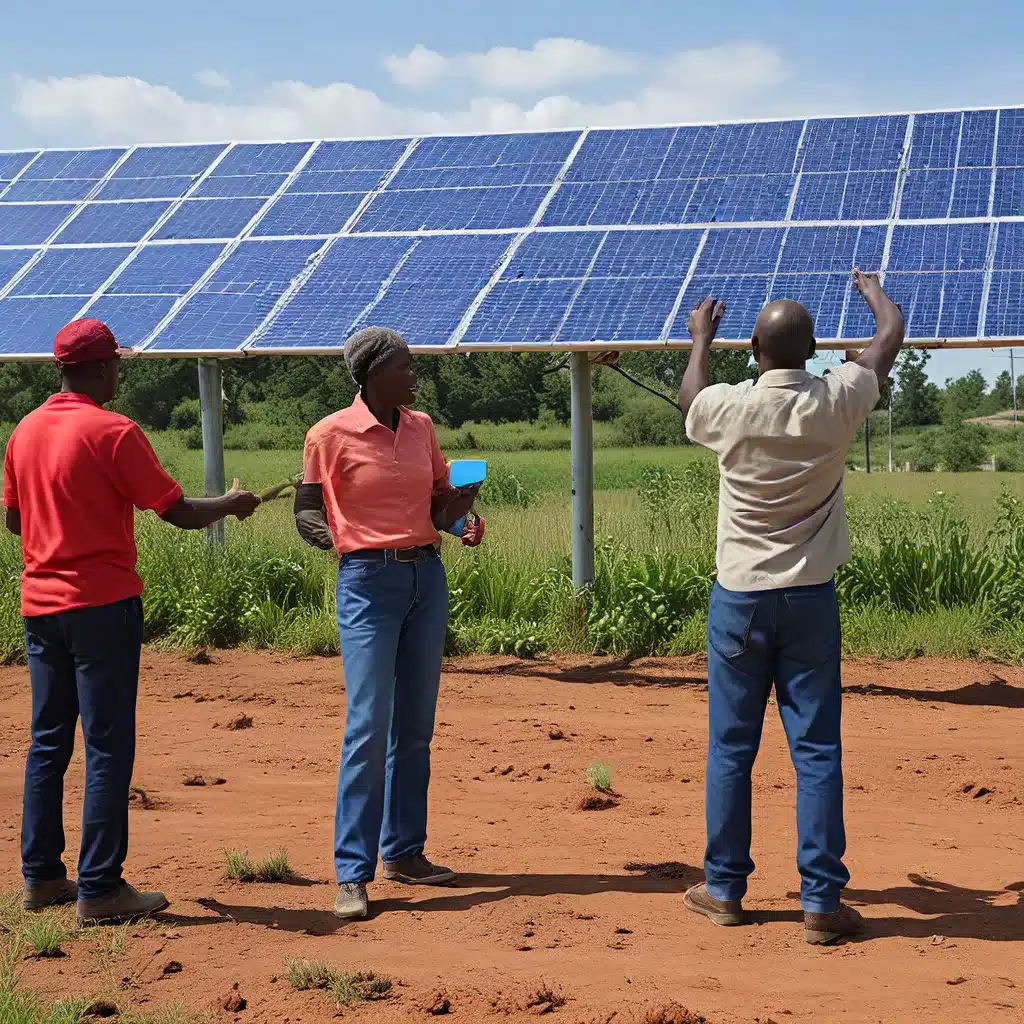
As I dive into this topic, I can’t help but feel a sense of excitement and wonder. Energy communities – where ordinary people come together to generate, consume, and even sell their own renewable power – are rewriting the script when it comes to how we power our homes and communities. It’s a grassroots revolution that’s quietly sweeping across Europe, and the implications are nothing short of transformative.
You see, for far too long, energy has been the domain of big corporations and distant utilities. We’re the ones who pay the bills, but we’ve had little say in where that energy comes from or how it’s produced. But energy communities are flipping that model on its head, putting power (quite literally) back into the hands of the people.
Imagine a world where your neighbor isn’t just the friendly face you wave to every morning, but also the one generating the electricity that powers your home through a shared solar array on the community center’s roof. Or a rural town that’s become energy self-sufficient, thanks to a collectively-owned wind farm on the outskirts. These are the kinds of stories that are unfolding across Europe, and they’re the harbingers of a future where energy is more democratic, more sustainable, and more equitable.
Empowering Communities, Energizing Change
At the heart of this movement are energy communities – groups of citizens, small businesses, and local organizations that have banded together to take control of their energy destiny. These community-led initiatives are popping up everywhere, from the sun-drenched Mediterranean islands of Greece to the wind-swept coasts of Denmark.
In Italy, for example, one energy community in the low-income San Giovanni neighborhood of Naples has been delivering electricity to 20 families for 25% less than the cost of utility-supplied energy, all while using a 166-panel photovoltaic solar roof system. The benefits go beyond just lower bills – these projects are also increasing grid resilience and alleviating energy poverty. As one resident put it, “Energy communities are about more than just increasing renewable energy sources – they help promote local development.”
And it’s not just happening in Italy. Germany boasts the largest number of registered energy communities in the EU, with over 220,000 members across 914 different projects. Many of these are cooperatives, where citizens pool their resources to invest in solar, wind, or even biomass energy. In the Odenwaldkreis district, the Energiegenossenschaft Odenwald eG energy community has secured over €50 million in investments to build out 83 solar plants and wind turbines.
A Supportive Policy Landscape
The rise of energy communities hasn’t happened in a vacuum. Across Europe, governments are recognizing the power of these grassroots initiatives and putting policies in place to nurture their growth. The European Union’s Clean Energy for all Europeans Package, adopted in 2019, was a game-changer, officially introducing the concepts of Citizen Energy Communities (CECs) and Renewable Energy Communities (RECs).
These legal frameworks have given energy communities a solid foundation to build upon, with the EU requiring member states to create their own supporting legislation. And the results have been promising – as of 2022, there were over 9,000 energy communities operating across the EU.
But the story doesn’t end there. Different countries have taken different approaches, with some, like Denmark and Germany, having a long history of cooperative energy models, while others, like Latvia, are just starting to embrace the concept. And the policies put in place by national governments can make all the difference.
In Denmark, for example, the government has invested heavily in district heating systems, with the Danish District Heating Association delivering electricity to 1.7 million homes, 65% of which comes from renewable sources. Meanwhile, in Latvia, the government has set aside €42 million to support energy communities, with a focus on rooftop solar photovoltaic systems.
Overcoming Challenges, Unlocking Potential
Of course, the path to a truly democratized energy landscape isn’t without its challenges. Financial barriers, such as the high costs of initial investments and operational expenses, can be a significant hurdle for energy communities. And in some cases, like the decline of wind energy cooperatives in Denmark, national policies have actually worked against the growth of these initiatives.
But the potential benefits of energy communities are just too compelling to ignore. Not only do they accelerate the transition to renewable energy, but they also bring economic development and social benefits to both rural and urban areas. And as the world races to meet ambitious climate goals, these community-led projects could be the key to unlocking the true power of a clean energy future.
A Global Inspiration
The story of energy communities in Europe is one of grassroots innovation, political will, and a deep-seated desire to take control of our energy destiny. And the ripples of this movement are being felt far beyond the borders of the EU.
From the United States to Canada to South Africa, communities are taking inspiration from the successes of their European counterparts and exploring ways to replicate these models. After all, the underlying principle is universal – when people come together to harness the power of renewable energy, the possibilities are truly endless.
So, as I reflect on this journey, I can’t help but feel a sense of optimism and possibility. Energy communities are more than just a technical solution to our energy needs; they’re a testament to the power of collective action and the transformative potential of ordinary people. And who knows – maybe one day, your own neighborhood will be the next to join this renewable revolution.

